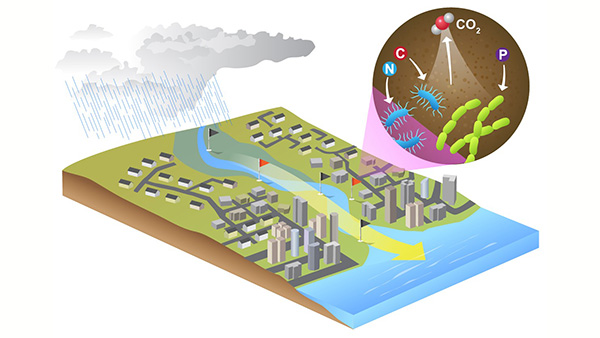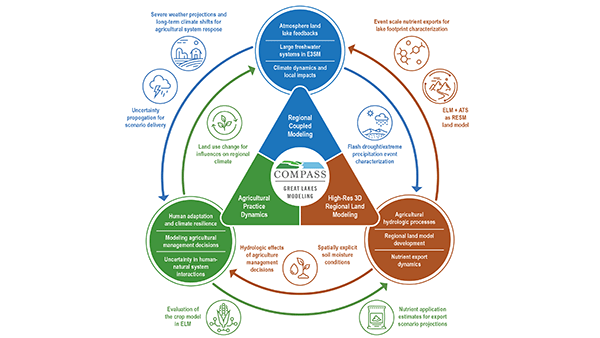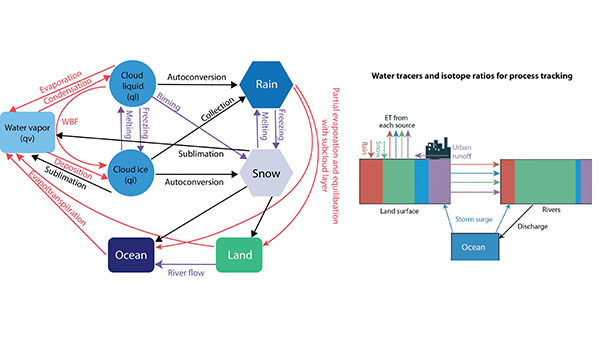Urban Resilience Across the Terrestrial-Aquatic Continuum: Mechanisms to Mass Balance
Over 70% of the world’s population is predicted to live in urban areas by the end of the century, yet the impacts of
urbanization
on
coastal ecosystems
are poorly understood. These systems disproportionately impact the global
carbon cycle
and are key to understanding
climate change.
This research aims to develop a process-based understanding of urban carbon cycling and its response to disturbances from land to sea.
| Keywords | carbon cycling, coastal ecoystems, TAI, urban |
|---|---|
| TYPE | Early Career |

Urban land uses strongly influence microbial carbon cycling along the terrestrial-aquatic systems. This work identifies specific locations (i.e., control points) exerting strong impact on carbon biogeochemistry and to understand the interplay of molecular controls, nutrient supply, and hydrologic factors that fuel the rapid microbial carbon processing at these locations, impacting downstream coastal systems. A molecular-scale understanding is critical to accurately predicting highly dynamic urban and coastal carbon cycles. (Image credit: Nathan Johnson, Pacific Northwest National Laboratory)
Categories
Other research you might be interested in
 COMPASS-GLM: Coastal Observations, Mechanisms, and Predictions Across Systems and Scales (COMPASS) Great Lakes Modeling (GLM)
COMPASS-GLM: Coastal Observations, Mechanisms, and Predictions Across Systems and Scales (COMPASS) Great Lakes Modeling (GLM)
 Probing Water Cycle Processes and Extremes in Coastal and Urban Environments Using Water Isotope Ratio Tracers and Numerical Tags
Probing Water Cycle Processes and Extremes in Coastal and Urban Environments Using Water Isotope Ratio Tracers and Numerical Tags
 SETx: Equitable solutions for communities caught between floods and air pollution
SETx: Equitable solutions for communities caught between floods and air pollution












